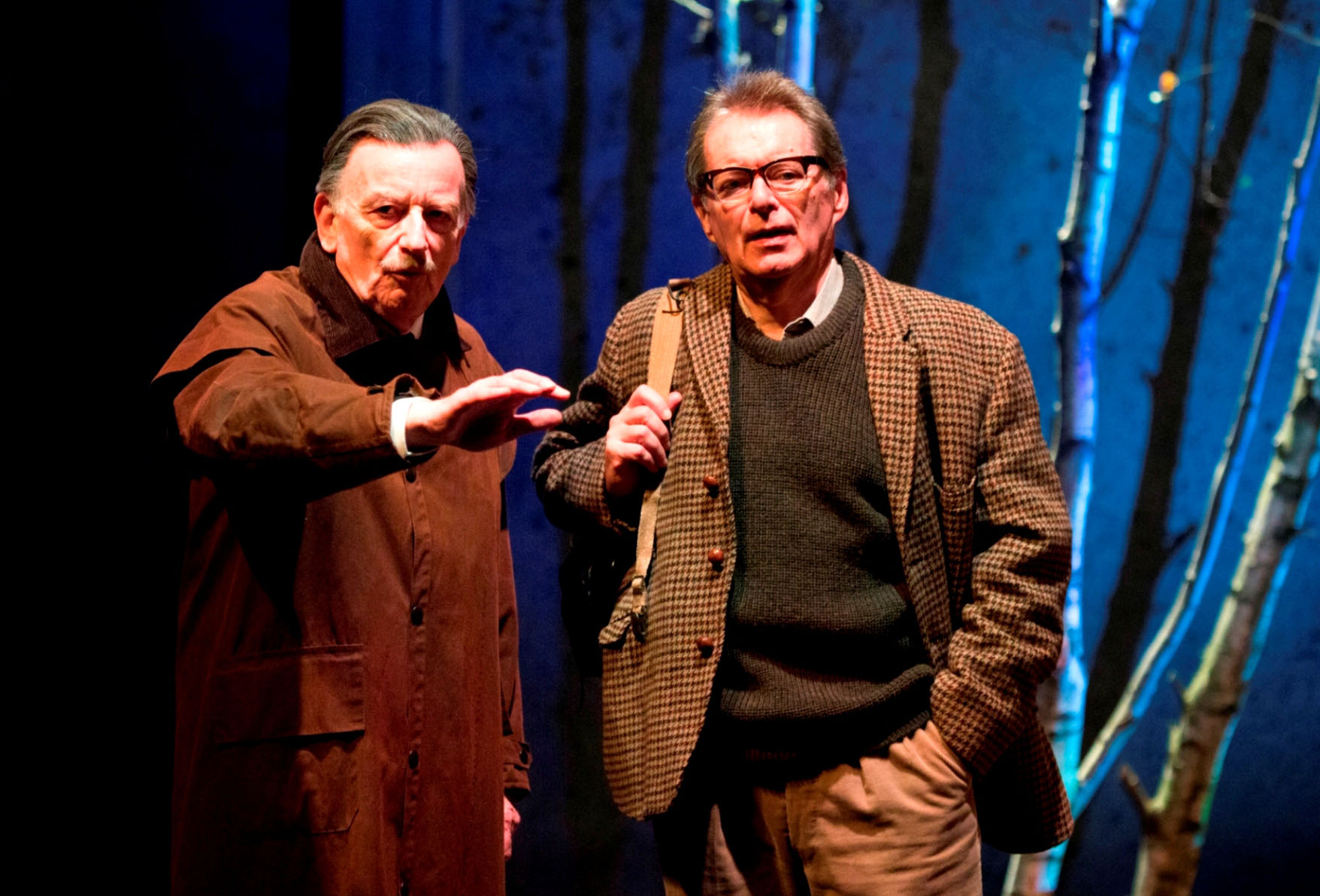
Nearly fifty years after Enoch Powell delivered what he referred to as his Birmingham speech – what most of us know as the “Rivers of Blood” speech – Ian McDiarmid takes the stage of the Birmingham Repertory to recite it. That the high point of What Shadows is this recitation demonstrates the longstanding power some words hold, and betrays how this production struggles to respond to them.
This is a play of two halves. Though less memorable than the second, the first half is entertaining. The performances are solid, and the staging is truly lovely: simple, but emotive. Framing the 1960s action, wherein Powell picnics with his wife (Brid Brennan) and friends Clem (a subtle and superb George Costigan) and Marjorie Jones (Paula Wilcox), with scenes set in 1992, focusing on Rose Cruickshank (Rebecca Scroggs), is a smart choice. Cruickshank is a young academic of Bajan descent who has a personal relationship with the speech, looking to write a book on potential ways to communicate with those we hate: in this case, Powell.
Post-interval, everything gets a lot messier as all the subtext becomes actual text. Identity politics is reduced to soundbites, delivered by rote. Messages are muddled as conversations are dragged out and already incongruous sub-plots receive even more stage-time. I found myself shaking my head more and more.
An old white man and a young black woman, debating over whose England is whose, represented as diametrically opposite and hating each other – it’s hardly novel. The only black actor is saddled for the most part with an Angry Black Woman stereotype (Google will provide you with countless more examples), and both characters she plays are termed as being racist, too, as the play is determined to have us believe that the fault of racism should be shared equally, even though its consequences and expressions are in no way equal.
Waleed Akhtar and Phaldut Sharma are wasted talents here. To have your minority ethnic characters be the comic relief is lazy. To have their accents be the punchline is lazy. Finally, to call for “tolerance” in a multicultural society is shockingly outdated, and offensive. It perpetuates the idea that others – people of different races, people of different cultures, just people who are in any way different to that which is front and centre here: the old, white, English Conservative – are to be “tolerated,” but nothing more. What about accepted? What about loved?
Why has so little warmth been afforded to the character of Rose? The last time we see him, Powell is a man in great pain, walking with a cane, affected by Parkinson’s disease and hallucinations. He asks to meet in the cemetery where he is to be buried. He is drawn as a dignified, sympathetic intellectual at the end of his full life, having lived through a lot, still full of conviction. And he jokes! He jokes, and the audience laugh along with him—never at him. And Rose is his opponent.
Much time is devoted to adding dimensionality to Powell, perhaps because he is the “big name” draw of the production, or maybe the playwright sincerely thinks him misunderstood and mischaracterised. It could be because of the great natural charm McDiarmid possesses that the character appears to get off so lightly, but Scroggs is given little opportunity for depth.
Across the board, this is a great cast, wasted greatly. The actors can only do their best with what they are given. McDiarmid is excellent throughout, and he, Costigan and Wilcox manage to put across a convincing portrait of complex and fractious friendship.
The message? At best it was confused. Finding ways to communicate across great divides is important, of course. Also, no one should be spat at, that we can all agree on. But this play seeks to equate the structural and institutional racism which has done (and continues to do) great damage to black and minority ethnic groups with a child spitting at an adult.
“I spat at a white woman! I spat at a white woman!” Rose’s realisation of her own “racism” takes no account for the fact that, at the time, she was a child constantly being criticised by her own mother for being too black, who was recently displaced to a wholly new, mostly white, racist country. The play cares little about the work Rose has done since, nor her life outside her relation to the “Rivers of Blood” speech, and seems to mock the idea that she might speak on hatred as an academic subject. No, the play wants us to nod along with Rose as she is told by wiser, whiter folk that she hasn’t quite understood everything and she should listen to them.
What Shadows is unchallenging, if not dangerous. It encourages the view that we need to be a little more sympathetic to the racists of the world, we should hear them out, we should even give them a full 2-hour and 45-minute show (and a 20-minute interval) to let them be understood properly. Even as they bitterly fight to disallow us from understanding others, from understanding each other.
Powell’s perspective has been elevated above others in the cacophony of voices that speak about race, immigration, and nationhood already, and while it deserves to be interrogated, and maybe allowed a little fleshing out, surely it is time that we hear more from those have mostly been silenced or ignored. ★☆☆☆☆ Will Amott 2nd November 2016

